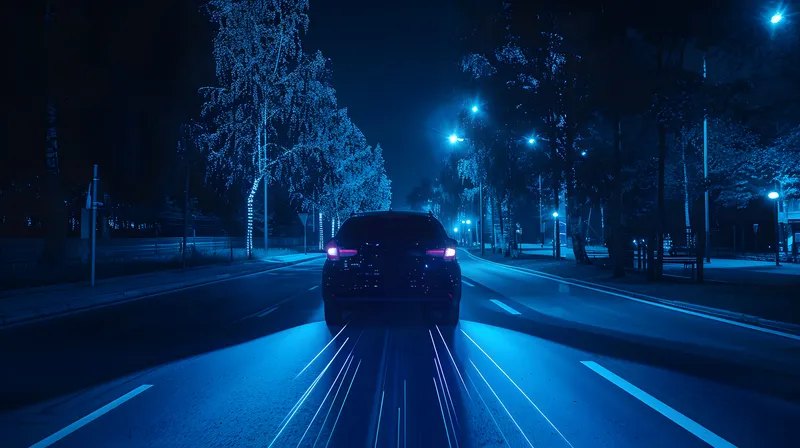The old line has it that if something seems too good to be true, then it probably is. Chances are, for instance, that that 'top-quality' set of carving knives on offer at a knock-down price in the back pages of the Sunday papers or the 'only-for-a-selected-few' email offer from some self-proclaimed expert on stocks and shares simply aren't the unmissable opportunities they purport to be.
February 27, 2012
Read time: 3 mins

The old line has it that if something seems too good to be true, then it
probably is. Chances are, for instance, that that 'top-quality' set of
carving knives on offer at a knock-down price in the back pages of the
Sunday papers or the 'only-for-a-selected-few' email offer from some
self-proclaimed expert on stocks and shares simply aren't the unmissable
opportunities they purport to be.
The number of truly epoch-shifting developments that come with little or no associated cost can be counted on the fingers of one badly mutilated hand. And that's a statement that extends back over many, many years, not just into recent times. The 'miracles' of our modern age, such as internet access with any meaningful bandwidth and operating speeds, cellular telephony and even - in the not-too-distant past - computerisation all came at a high initial cost. But at least over time proliferation and market forces brought prices down. It's interesting though how some supposedly positive steps forward have a high ongoing cost - and how they can continue to be perceived as cost savers when the reverse is in fact true.
In his article on p.28-29 Michael Sena makes reference to big-box low-cost retail chains, which minimise on-site storage and maximise selling space by effectively using their delivery fleets as rolling warehouses. It's not just those organisations who do it, though; anyone employing Just-In-Time (JIT) delivery or in fact Lean manufacturing commits the same sin.
I say 'sin' because in transport terms JIT is one of the biggest conceits of our time. It is portrayed as being cheaper/less expensive (pick whichever term least offends your sensibilities) than traditional methods of working. In fact, JIT has been nothing more than an opportunity for companies to divest themselves of significant capital and operating costs whilst at the same time representing that divestment as a benefit to everyone.
Pity, though, the poor transport networks. It'd be an interesting exercise, if it were at all possible, to reckon up all the warehouse space which has been lost as a result of all this streamlining. The figures, I'm sure, would be mind-blowing. Well, all that space, or capacity if you'll allow me to make the leap in terminology, has effectively been robbed from the transport system.
... which wouldn't be so much of a crime, were it not for the fact that many of those who complain most about our transport networks' supposed inefficiencies are among the first to benefit. For the record, we can include both producers and consumers here. Uncomfortable a notion as it is, we're all thieves.
If something seems too good to be true, then it probably is. In this case, the upshot is that we have road networks whose true worth is called into constant question, networks from which there is a presumption we have yet to derive more 'value', networks which have been obliged to absorb a huge cost burden whilst gaining nothing in return.
None of this will be news to some of you reading this. However sometimes it's worth re-stating something - just to reignite debate. Hopefully, at least. Because if a few more of these not-so-little 'inefficiencies' were wheedled out, perhaps our transport networks would receive more of the investment they deserve.
The number of truly epoch-shifting developments that come with little or no associated cost can be counted on the fingers of one badly mutilated hand. And that's a statement that extends back over many, many years, not just into recent times. The 'miracles' of our modern age, such as internet access with any meaningful bandwidth and operating speeds, cellular telephony and even - in the not-too-distant past - computerisation all came at a high initial cost. But at least over time proliferation and market forces brought prices down. It's interesting though how some supposedly positive steps forward have a high ongoing cost - and how they can continue to be perceived as cost savers when the reverse is in fact true.
In his article on p.28-29 Michael Sena makes reference to big-box low-cost retail chains, which minimise on-site storage and maximise selling space by effectively using their delivery fleets as rolling warehouses. It's not just those organisations who do it, though; anyone employing Just-In-Time (JIT) delivery or in fact Lean manufacturing commits the same sin.
I say 'sin' because in transport terms JIT is one of the biggest conceits of our time. It is portrayed as being cheaper/less expensive (pick whichever term least offends your sensibilities) than traditional methods of working. In fact, JIT has been nothing more than an opportunity for companies to divest themselves of significant capital and operating costs whilst at the same time representing that divestment as a benefit to everyone.
Pity, though, the poor transport networks. It'd be an interesting exercise, if it were at all possible, to reckon up all the warehouse space which has been lost as a result of all this streamlining. The figures, I'm sure, would be mind-blowing. Well, all that space, or capacity if you'll allow me to make the leap in terminology, has effectively been robbed from the transport system.
... which wouldn't be so much of a crime, were it not for the fact that many of those who complain most about our transport networks' supposed inefficiencies are among the first to benefit. For the record, we can include both producers and consumers here. Uncomfortable a notion as it is, we're all thieves.
If something seems too good to be true, then it probably is. In this case, the upshot is that we have road networks whose true worth is called into constant question, networks from which there is a presumption we have yet to derive more 'value', networks which have been obliged to absorb a huge cost burden whilst gaining nothing in return.
None of this will be news to some of you reading this. However sometimes it's worth re-stating something - just to reignite debate. Hopefully, at least. Because if a few more of these not-so-little 'inefficiencies' were wheedled out, perhaps our transport networks would receive more of the investment they deserve.










